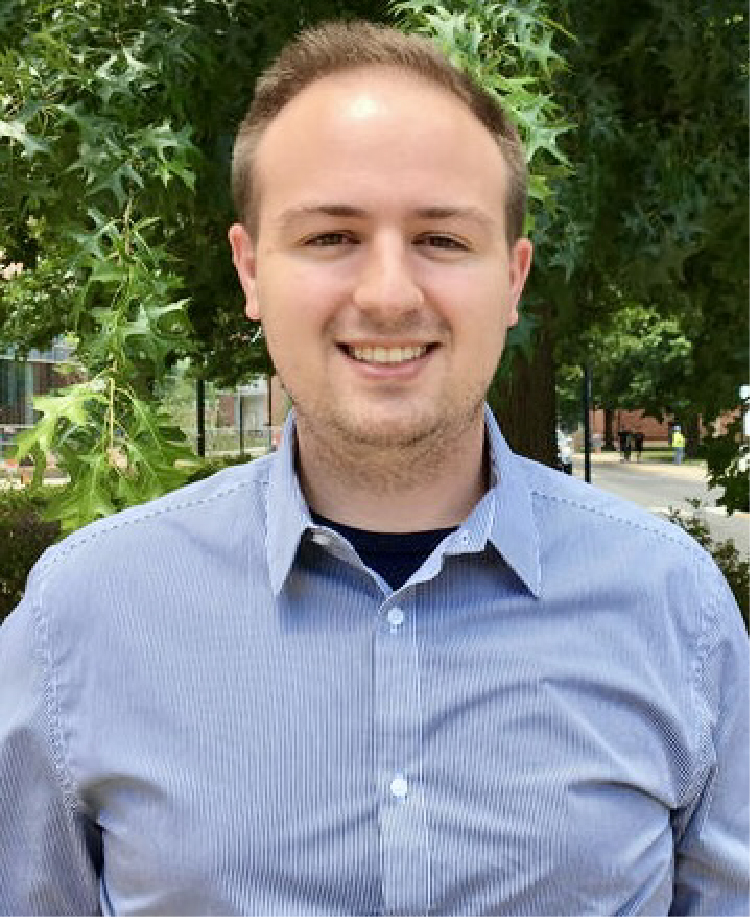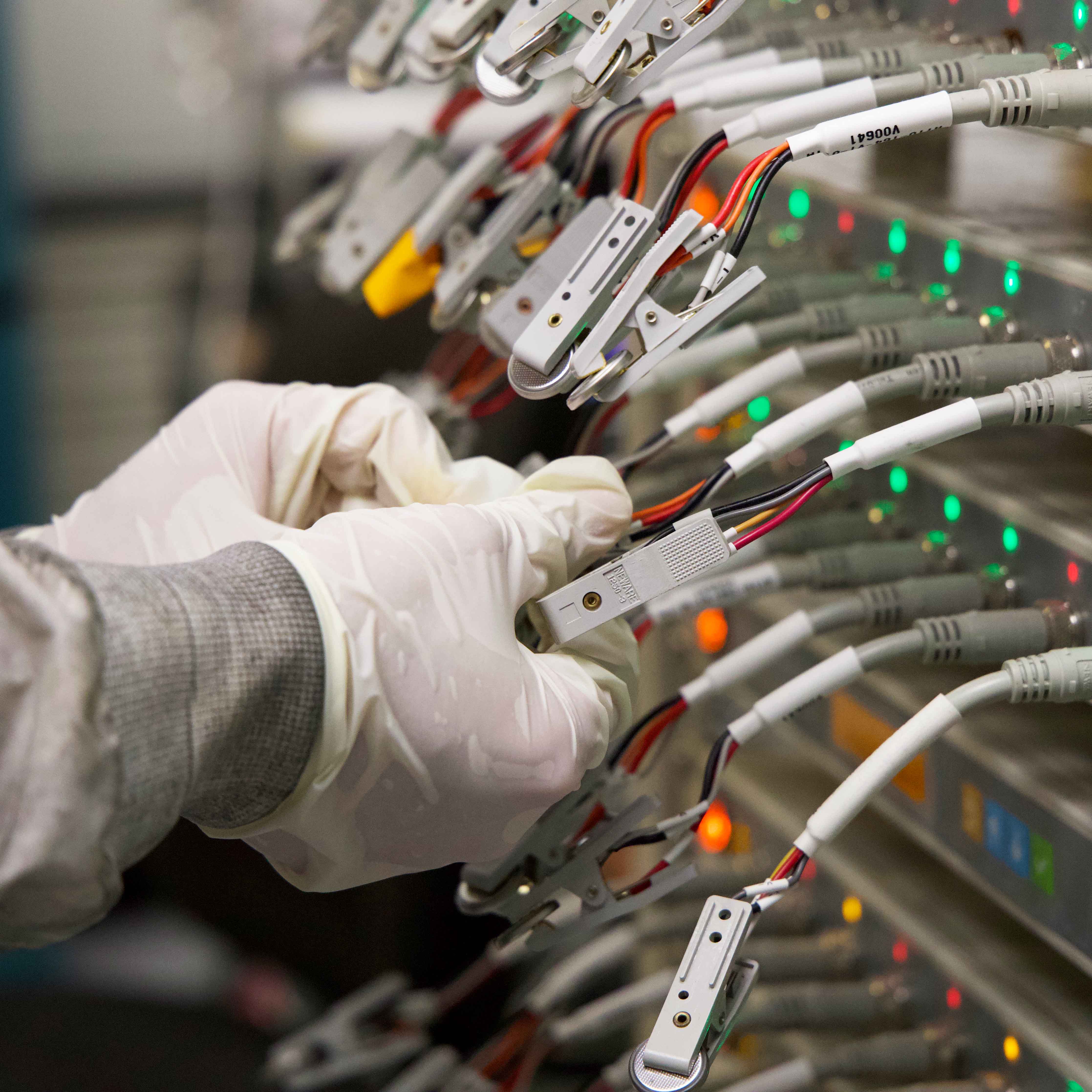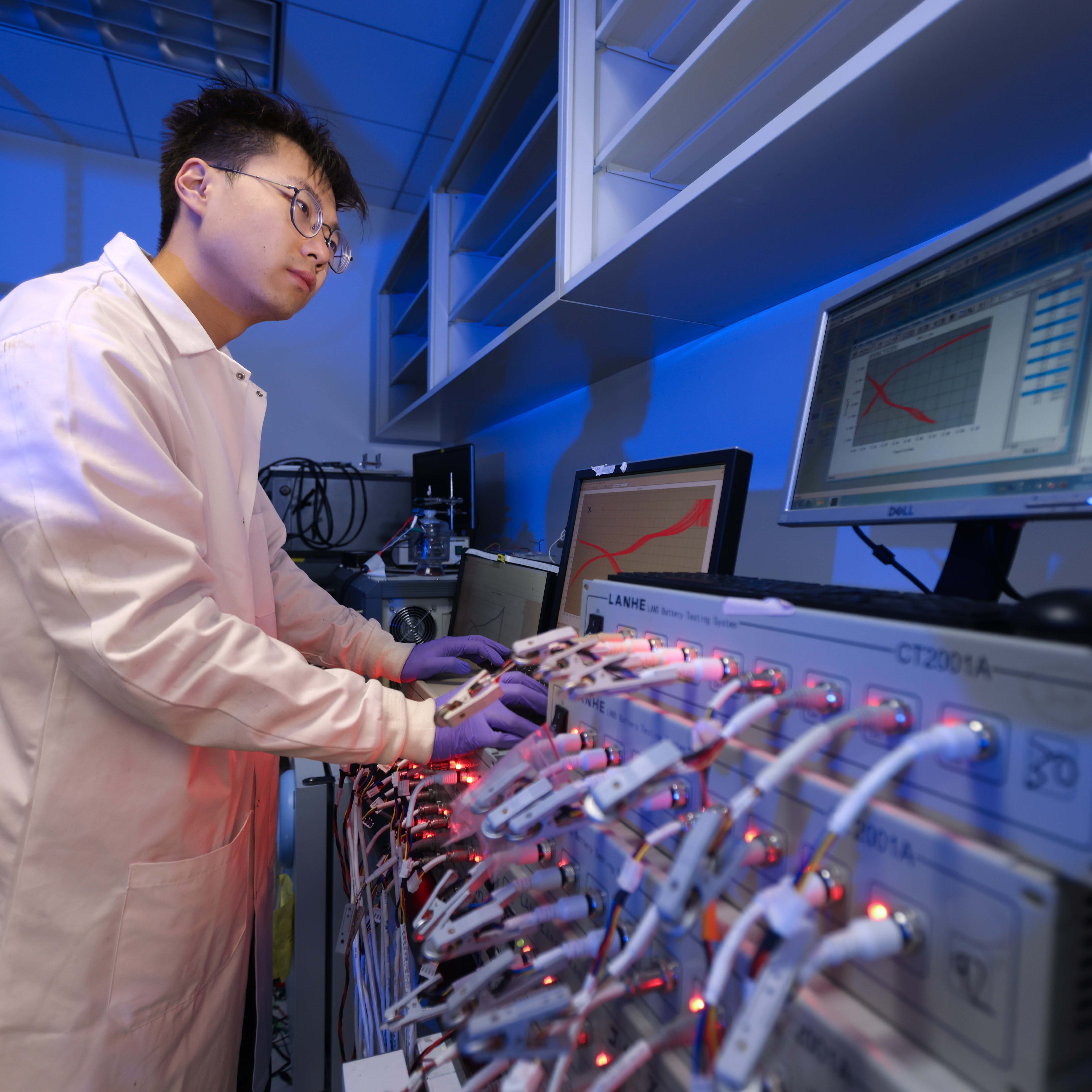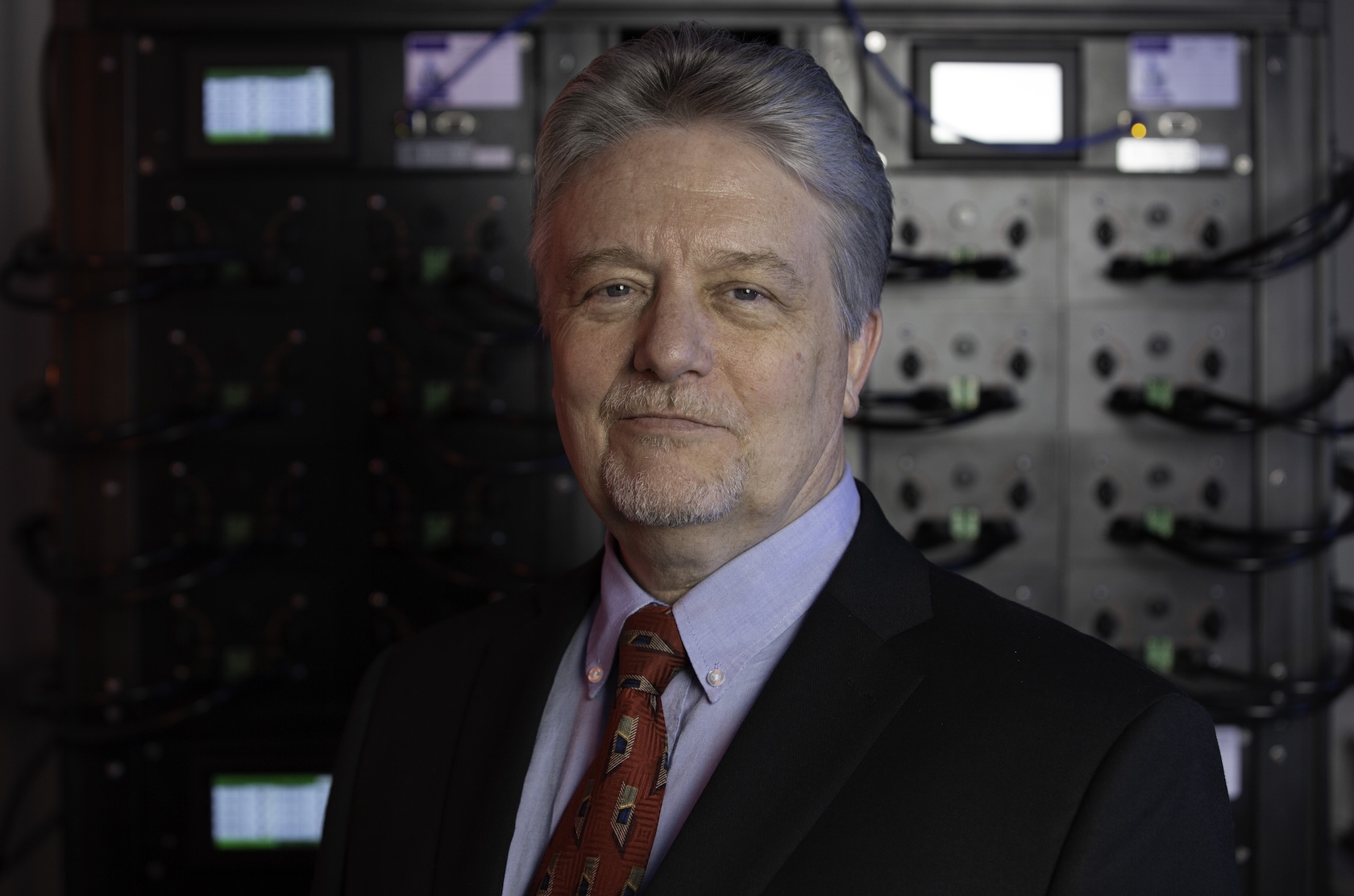News Story
Kyle Ludwig PhD ’23 Publishes Work on Lithium-ion Batteries in Advanced Energy Materials

Kyle Ludwig, BS ’15, PhD ’23, chemical and biomolecular engineering, is on a mission to strike the perfect balance between electrochemical stability and transport properties in the creation of electrolytes to fuel lithium-ion batteries. “Typical batteries are highly flammable,” says Ludwig. “Our goal is to improve the properties of alternative materials, combining the benefits of aqueous electrolytes with solid polymers to be better aligned commercially.”
The rapid growth in demand for batteries that can deliver more energy and power has generated concerns over safety. Solid polymer electrolytes (SPEs) have the potential to meet evolving Li-ion battery demands, but for these electrolytes to satisfy growing power and energy density requirements, both transport properties and electrochemical stability must be improved. Unfortunately, improvement in one of these properties often comes at the expense of the other.
Results of Ludwig’s work were recently published in Advanced Energy Materials. His paper, “Examining the Electrochemical Properties of Hybrid Aqueous/Ionic Liquid Solid Polymer Electrolytes (HAILSPE) Through the Lens of Composition-Function Relationships,” documents how HAILSPE, which incorporates triethylsulfonium-TFSI or N-methyl-N-propylpyrrolidinium-TFSI and ionic liquid (IL) alongside water and salt, impacts transport and electrochemical stability.
“We investigated a unique combination of polymer matrix, water, ionic liquid, and lithium salt to create a favorable polymer electrolyte for lithium-ion batteries,” explains Ludwig. “The inclusion of water and the solid nature of these polymer electrolytes significantly boost safety characteristics over conventional liquid organic electrolytes.”
“Publication of this article is a great accomplishment for Kyle,” says Department of Chemical and Biomolecular Engineering Chair Peter Kofinas, Ludwig’s PhD advisor. “Advanced Energy Materials is one of the premier journals in the field of energy storage and batteries, which demonstrates the high impact of his work.”
Ludwig is one of only a handful of researchers studying combinations of aqueous and ionic liquid additives in solid state electrolytes for lithium-ion batteries. He notes the choice of an ionic liquid is variable as there are a multitude of different types that could be used to investigate impact on battery performance. “The predominant choice in the literature was not the one that produced the best results for us,” says Ludwig. “We need to dig deeper with future iterations of systems.”
Ludwig is now working as a research scientist at AquaLith, a startup company based at UMD that has exclusively licensed a portfolio of lithium-ion battery patents. The company has developed new material chemistries that enable consumer electronic devices and electric vehicles to spend significantly less time charging their batteries.
Published August 17, 2023









